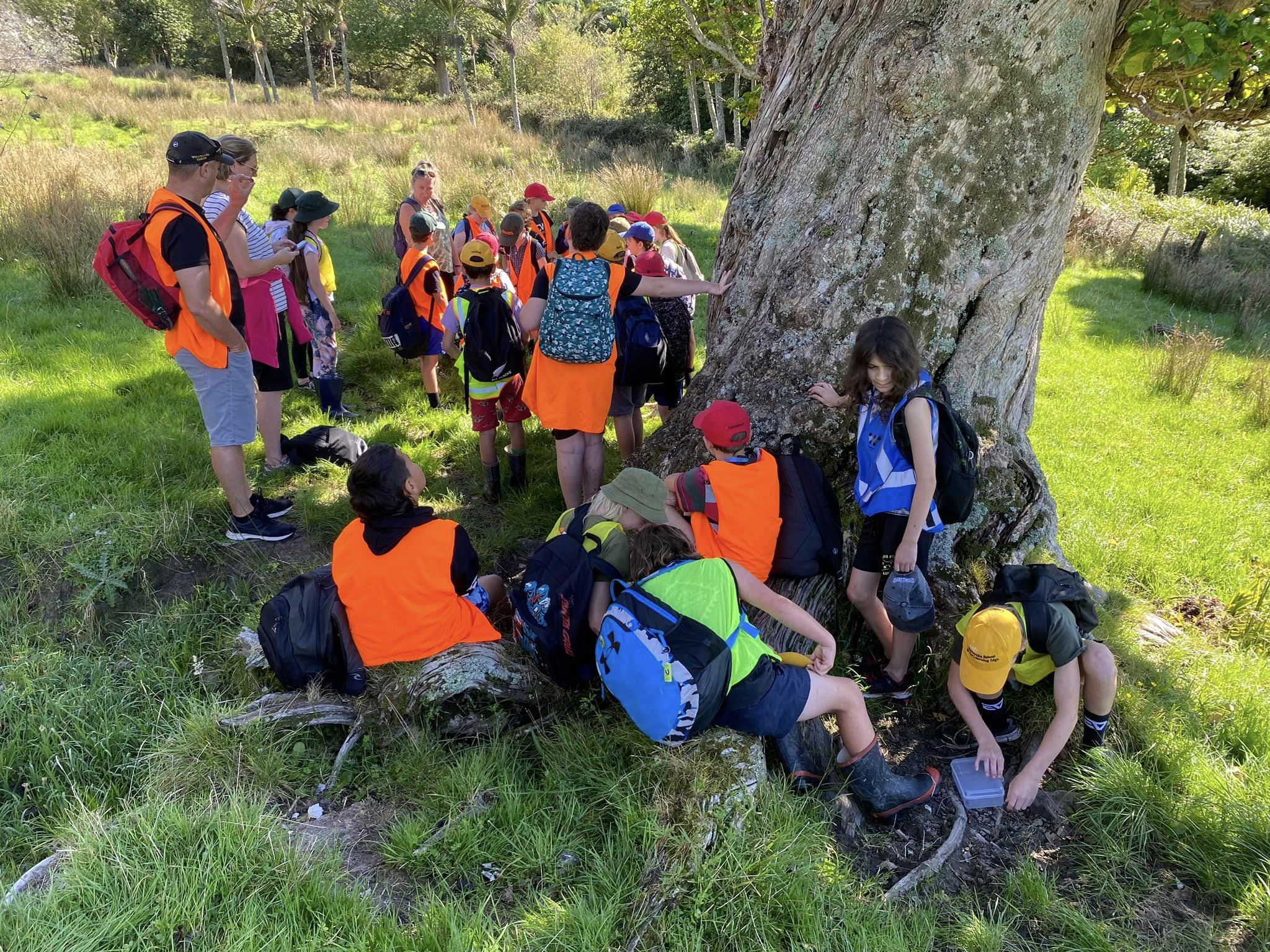Whāngārā Farms kickstart journey towards native bush restoration

Whāngārā Farms have begun the journey towards transforming 435ha of farm land into native bush.
With the aim of encouraging land regeneration, four hundred hectares at Puatai, and thirty five hectares at Tapuwae Whitiwhiti have been identified and planned for the native bush restoration.
The original Whāngārā Farms partnership was made up of two Māori Incorporations, Pakarae A and Other Blocks, and Whāngārā B5. In 2015, a third incorporation, Tapuwae Whitiwhiti joined Whāngārā Farms, creating the organisation we see today.
The incorporated blocks have a dream of their underutilised whenua eventually being planted full of edible and thriving native species and medicinal plants.
In October, a collaborative effort between Tairāwhiti Enviroschools, Makaraka School, Women’s Native Tree Project Trust and Whāngārā Farms saw students of Makaraka School tramping through Whāngārā B5 block, learning how to identify native species, and collecting seeds for propagation and planting.
The day featured informative talks about the essential role of native species and seeds in supporting Whāngārā Farms’ native bush and biodiversity efforts.
Students also had the opportunity to engage with experts, learn about the importance of seed collection, and actively participate in seed gathering at different locations across the incorporated Farms.
More than 500 seedlings were collected on the day, with students learning how to propagate and prepare for planting. Womens’ Native Tree Project Trust shared that once ready, “lots of lovely puriri, kohekohe, nikau and kawakawa will be donated back to the region.”
Ray Leach, Business Manager of Whāngārā Farms, expressed his gratitude for the collaboration, saying: “We are heartened to see so many people and tamariki actively involved in preserving and restoring our retired land blocks.
“"The success of this collection underscores our shared dedication to safeguarding Whāngārā Farms’ natural environment for future generations.”
The collected seeds are invaluable to Whāngārā Farms’ ongoing efforts to propagate native species for native bush in the future.
The native bush kaupapa also touches on many key priorities that Whāngārā Farms are wanting to promote including the goal of looking after both its people and natural environments; and working to ensure the preservation of its whenua for future generations.
Whāngārā Farms thanks Makaraka School, Tairāwhiti Enviroschools, Womens’ Native Tree Project Trust, EIT Horticulture Lecturer, Ron Taiapa and Arihia Gibson for the collective mahi during October that has kickstarted the work towards restoring native bush.
Whāngārā Farms are looking forward to the next steps of the restoration project which includes a native nursery.
-------------------------
A Whāngārā Farms native nursery is one of the exciting next steps of the Farms’ restoration initiatives.
The native nursery project is part of the Ministry of Primary Industries (MPI) Māori Agribusiness Pathway to Increased Productivity (MAPIP) program, supporting the incorporated blocks to restore underutilised whenua on its’ retired land into riparian planting and native regeneration projects.
The MPI program aligns with Whāngārā Farms’ sustainable farming commitment, enabling the incorporated blocks to achieve long-term intergenerational goals for the whenua.
Ray Leach, Business Manager, says the project will also provide employment opportunities for its’ shareholders, whānau and iwi to work in the native nursery.
“The restoration of the whenua will not only bring us as a people even closer to te taiao, but we are looking to provide career pathways for our people.”
The Whāngārā Farms Board hopes that the native nursery will provide opportunities and build the internal capacity of its’ people not only through employment, but through education and re-instating the connection to the Whāngārā Farms environment and acting as a catalyst for change in the community.
Alongside the native nursery, Whāngārā Farms will be developing a plan for the collection of seeds, propagation and planting, and the completion of initial milestones in the MAPIP program including a detailed assessment of the specific restoration requirements of the Whāngārā environment.
Whāngārā Farms are excited to share the outcomes in early 2024.
Te Toto O Te Tangata He Kai, Te Oranga O Te Tangata Te Whenua.
While food provides the blood in our veins, our health is drawn from the land.








